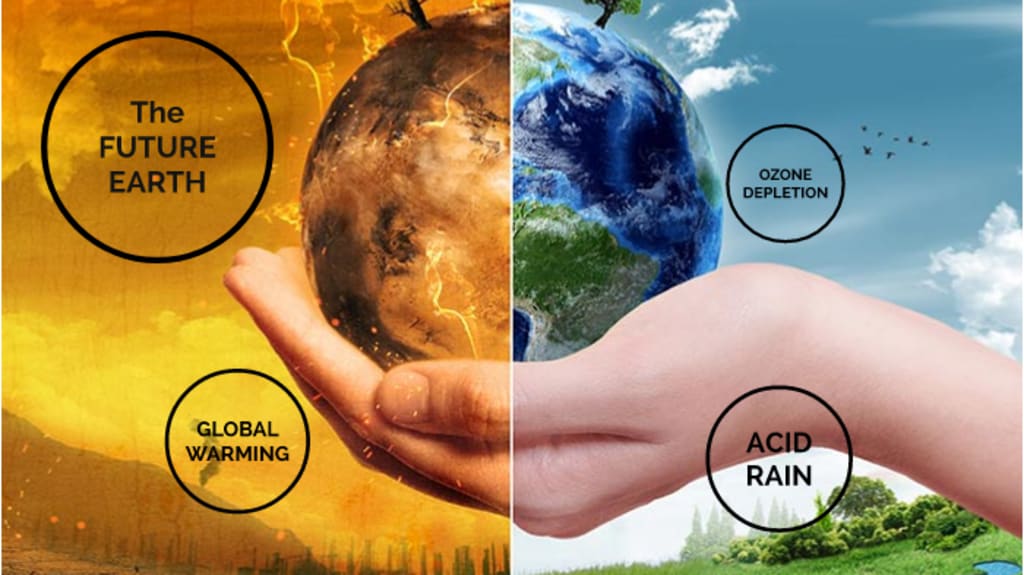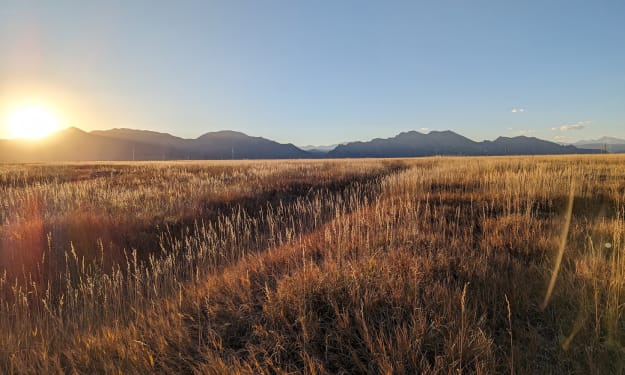Future Earth
Challenges and oppurtunities

The Future of Earth: Challenges and Opportunities
As our world continues to evolve and progress, the future of our planet is becoming an increasingly pressing concern. Climate change, resource depletion, and population growth are all major challenges facing our planet, but there are also opportunities for us to create a more sustainable and equitable future.
Challenges:
One of the most significant challenges facing our planet is climate change. Rising global temperatures are causing extreme weather events, rising sea levels, and the loss of biodiversity. We must take action to reduce greenhouse gas emissions, promote sustainable energy sources, and protect our natural ecosystems.
Another challenge is resource depletion. As our population grows and our consumption patterns change, we are using up the earth's natural resources at an unsustainable rate. We must find ways to reduce waste, recycle more effectively, and develop new technologies that allow us to use resources more efficiently.
The future of our planet is one of the most pressing concerns of our time, and the idea of "future earth" has become increasingly popular in recent years. Future earth refers to a vision of a sustainable and resilient world, where human societies and the natural world coexist in harmony.
The concept of future earth is not only about mitigating the impacts of climate change, but also about promoting sustainable development, improving human well-being, and ensuring social and environmental justice. It involves a shift towards a more circular economy, where waste is minimized and resources are conserved, and a transition towards clean and renewable energy sources.
One of the key challenges in creating a future earth is the need for global cooperation and collective action. This requires a fundamental shift in our values, attitudes, and behaviors, and a recognition of our interdependence with the natural world. It also requires the involvement of all stakeholders, including governments, businesses, civil society, and individuals.
Some of the innovative solutions being proposed for creating a future earth include the development of sustainable cities, the use of smart technologies for energy and resource management, and the promotion of sustainable agriculture and forestry practices. These solutions require a combination of technical and social innovations, and a commitment to long-term planning and collaboration.
In conclusion, the concept of future earth offers a powerful vision of a sustainable and resilient world, where humanity and nature thrive together. Achieving this vision will require bold action and visionary leadership, but it is a goal that is worth pursuing for the sake of our planet and future generations.
Finally, population growth is another significant challenge. As our population grows, we will need more resources to sustain ourselves. This will put increasing pressure on our food, water, and energy systems, and we must find ways to meet these growing demands without degrading the earth's natural systems.
Opportunities:
Despite these challenges, there are also significant opportunities for us to create a more sustainable and equitable future. One of the most exciting opportunities is the rapid development of new technologies that can help us reduce our impact on the planet. For example, renewable energy technologies such as solar and wind power are becoming increasingly cost-effective and widely available, and electric vehicles are rapidly replacing fossil fuel-powered cars.
Another opportunity is the growing awareness and interest in sustainability among businesses and consumers. Many companies are adopting more sustainable practices, and consumers are increasingly demanding eco-friendly products and services. This shift is creating new opportunities for green jobs and sustainable economic growth.
Finally, there is an opportunity for us to rethink our relationship with the natural world. Rather than seeing nature as something to be exploited and consumed, we can learn to live in harmony with the earth's natural systems. This means protecting our natural ecosystems, preserving biodiversity, and finding ways to meet our needs without degrading the environment.
Conclusion:
The future of our planet is both challenging and full of opportunities. As we face the challenges of climate change, resource depletion, and population growth, we must also seize the opportunities to create a more sustainable and equitable future. By adopting new technologies, promoting sustainable practices, and rethinking our relationship with the natural world, we can create a future that is both prosperous and environmentally sustainable.





Comments
There are no comments for this story
Be the first to respond and start the conversation.